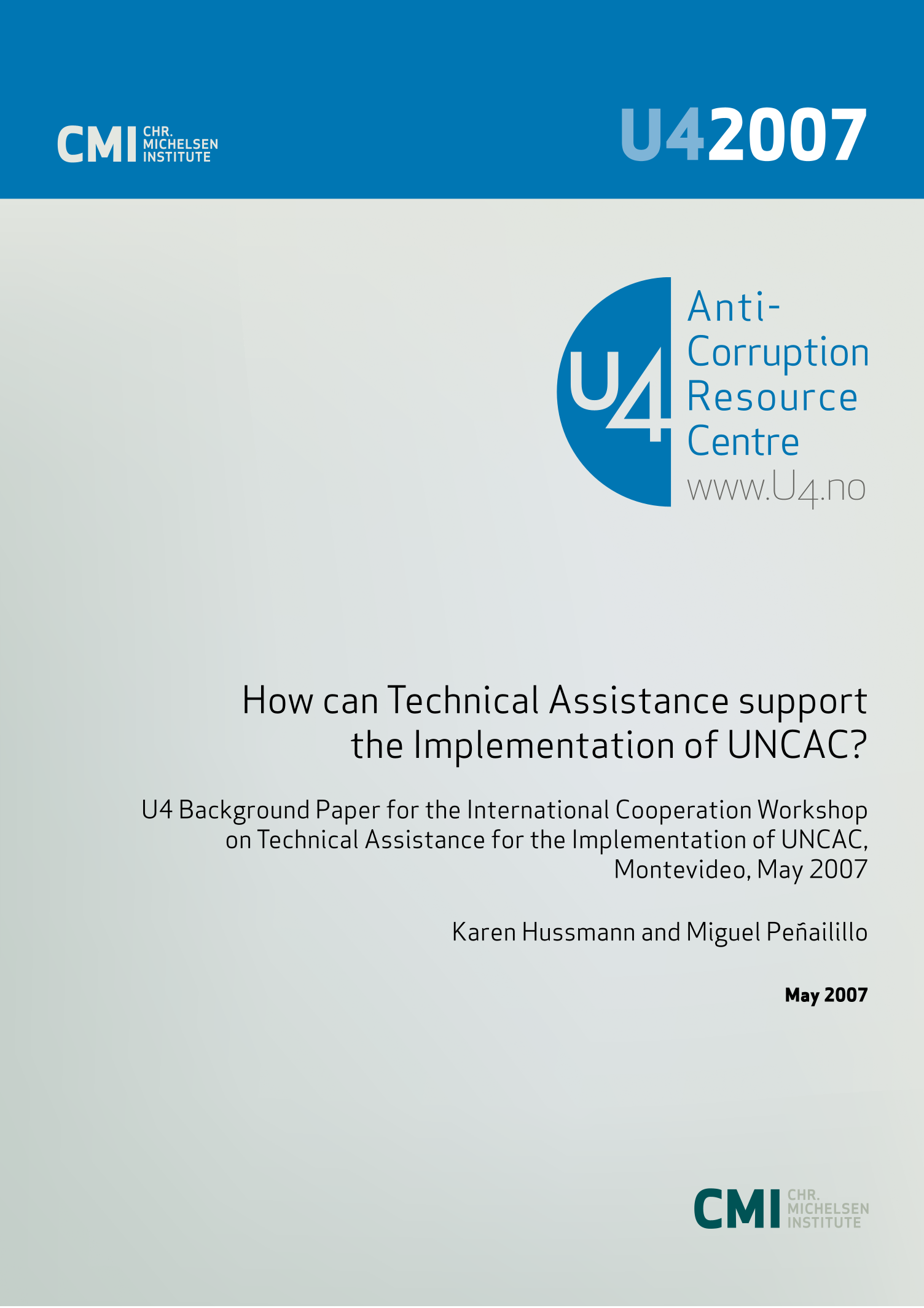U4 Issue
How can technical assistance support the implementation of UNCAC? U4 background paper for the international cooperation workshop on technical assistance for the implementation of UNCAC, Montevideo, May 2007
At the first Conference of States Parties to the United Nations Convention against Corruption (UNCAC), held in Jordan in December 2006, participants agreed to establish a working group to promote the coordination of cooperation and technical assistance for UNCAC implementation. To facilitate the task of this group, it was also decided to organise a workshop with development and law enforcement experts to discuss good practices and potential avenues of coordination.[1] The main purpose of this paper is to provide inputs for discussion at this workshop to be held in Montevideo, Uruguay, at the end of May 2007. This paper highlights the perspective of development practitioners and is intended to complement the paper submitted by Finland to jointly contribute to well-informed workshop debates.
[1] See Resolution 1/6, report of Conference of State Parties to UNCAC, CAC/COSP/2006/12.

Cite this publication
Peñailillo, M.; Hussmann, K. (2007) How can technical assistance support the implementation of UNCAC? U4 background paper for the international cooperation workshop on technical assistance for the implementation of UNCAC, Montevideo, May 2007. Bergen: Chr. Michelsen Institute (U4 Background paper 2007:1) 27 p.
Disclaimer
All views in this text are the author(s)’, and may differ from the U4 partner agencies’ policies.
This work is licenced under a Creative Commons Attribution-NonCommercial-NoDerivatives 4.0 International licence (CC BY-NC-ND 4.0)